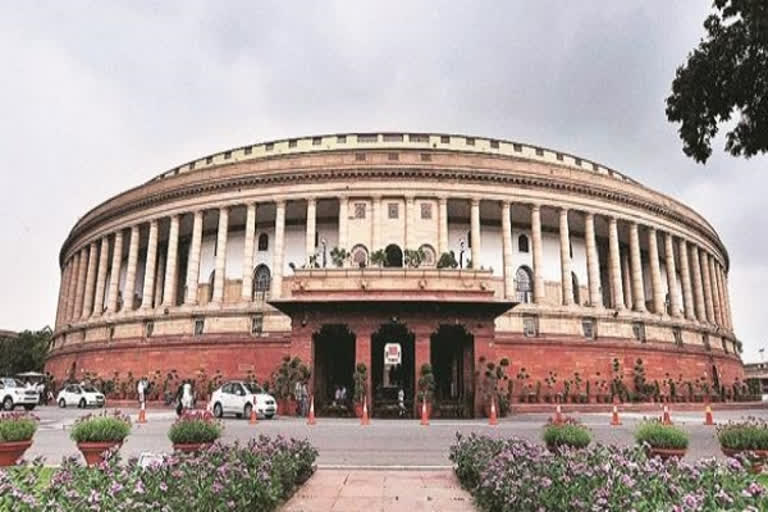Hyderabad: After the first general elections under the new Constitution during 1951-52, the first elected Parliament came into existence in April 1952. The country’s democracy began its march forward with the golden words of the first President Dr Rajendra Prasad: “I hope your efforts will bring the best benefits to the people and I also hope that this Parliament will be a shining example of best performance.”
Pandit Jawaharlal Nehru described the Parliament as a great institution that is building the history of a one-seventh population of the World. Ganesh Vasudev Mavlankar, the first Speaker of Lok Sabha made tireless efforts to uphold the lofty Parliamentary traditions and values. The globally renowned newspaper 'The Guardian' had lauded the Indian Parliament’s performance in 1954 stating that Pundit Nehru can claim it to be a school for entire Asia. This clearly tells us that the Hon’ble members of the house were completely dedicated to public service in those days.
Read: Lok Sabha clears bill to raise FDI limit to 74 per cent in insurance sector
Parliament in those days displayed exemplary farsightedness as it felt that the collapse of the legislatures’ prestige would throw democracy into great turmoil. Setting aside their political affiliation, the Parliamentarians of those days used to come together to remove the erring members. Congress MP Feroz Gandhi had exposed the unsavory episode in which a member named Mudgal had taken Rs 2000 to raise a question in the Parliament. Though Mudgal also hailed from the Congress, the then Prime Minister Nehru got him removed from the party in September 1951. He thus showed his dedication to upholding the sanctity of the Parliament.
Where did those values espoused by the great leaders disappear after 17 general elections? What are the abysmal depths to which the system of legislature has descended as every legislative body from Parliament to Assembly are full of persons with a criminal track record?
Read: Parliament budget session may conclude before Holi
The British used to assemble the legislature once a year to discuss the details of the government’s revenue and income. However, after coming into force the Constitution of India made it a rule that there should not be a gap of more than six months between two sessions of Parliament. As a votary of democratic accountability, Dr Bhimrao Ambedkar had stipulated in his Constitution that the government is answerable to the people’s house. Today the situation is so pathetic that even the resolutions passed by the Parliament are not getting implemented.
The Parliament had unveiled a 14 point Agenda for India during the golden jubilee celebrations of the country’s independence. Instead of blooming into a civilized culture of accountability and responsibility, Indian democracy has degenerated into votes based on cash, caste and creed, and seats for criminal elements.
As many as 24 per cent of all the MPs in the 14th Lok Sabha had a criminal track record. In the next house, the number of such persons rose to 30 per cent, in the last Lok Sabha 34 per cent of MPs were having a criminal record. In the present house, their number increased to 43 per cent. It is worth recalling that the Manmohan Singh government had submitted an affidavit to the Supreme Court stating that allegations of crime need not be a hindrance to accord ministerial berth to an MP.
Read: TMC seeks adjournment of Parliament session, cites elections in five states
It is ironic that a person convicted of a crime is withheld from being a public representative only for a limited time period while a government servant is removed from service permanently if convicted in a criminal case. Stating that this is against the right to equality as enshrined in the Constitution of India, a petition has already been filed in the court of law. However, the Central government has voted for the status quo on the matter stating that they are not bound by any service rule but only by the oath to serve the people. Successive governments have sided with public representatives with a criminal track record. They are thus supporting the fences that are eating the crop and thereby lowering the prestige of the Parliament.




